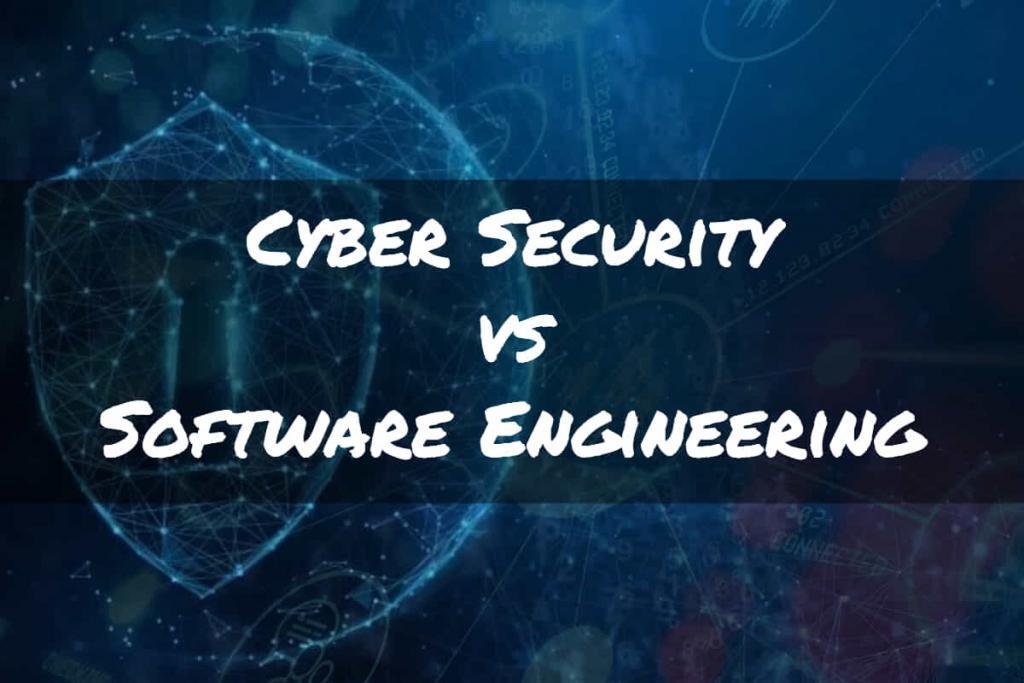How to prepare for a cyber security interview? There are a lot of things to worry about when you’re getting ready for a cyber security interview. Whether you’re a recent college graduate looking for an entry-level position or an experienced security professional seeking a new opportunity, it’s the preparation that can make a difference. By starting early, you’ll have plenty of time to prepare yourself before your security interview.
- Write a Bang-Up Resume
- Don't Forget the Cover Letter
- Remember which Resume and Cover Letter You Submitted
- Get the Interview Details in An Email
- Doing Your Research Is the Best Way to Prepare for A Cyber Security Interview
- Network, Network, Network
- Know How the Position Helps to Further Each Other’s Goals
- Understand the Company’s Business Objectives
- Prepare for Your Cyber Security Interview with Practice!
- Talk About Your Past Life
- How Do You Behave?
- Are You Technically Savvy?
- Fake Interviews Aren’t That Fake!
- Get Ready for Your Cyber Security Interview by Having a Long-Term Goal in Mind
- Know What's Hot in the Industry!
- Read Deeper into the Position Description
- Prepare for Your Cyber Security Interview with Your Own Questions!
- Make Copies of Your Resume and Cover Letter
- Dress for Success, Not to Impress
- Get Some Rest to Be Ready for Your Cyber Security Interview
- Interested in More…
Write a Bang-Up Resume
There’s a lot more to a resume than just listing what you’ve done; it’s important to know what an employer wants.
If there are specific skills or knowledge sets that are important to them (such as which operating systems you’re familiar with), make sure those things show up prominently on your resume.
They’ll also be looking for evidence of any work experience related to security, so if you’ve got some projects, labs, or simulations under your belt, make sure they get highlighted too!
If there’s something missing from your work history, don’t be afraid to reach out to former colleagues or managers for recommendations!
Remember, a resume doesn’t get you a job, it has one purpose: it needs to convince employers that you’re qualified for an interview. A well-designed (and proofread) cyber security resume will set you apart from other candidates and help you get an interview much faster.
Click here for 90 Cybersecurity Resume Tips to Help You Land an Interview!
Don’t Forget the Cover Letter
We know that it takes extra time to personalize a cover letter for each company, so it’s really up to you if you want to add that extra touch; but it does add that extra umph in an already competitive market.
The thing about cover letters is that they only serve to enhance an already outstanding resume.
If your resume isn’t formatted very well or it doesn’t meet the minimum qualifications, then the question is, “Why are you even applying”?
Remember which Resume and Cover Letter You Submitted
Don’t change your resume or cover letter once it’s already been submitted!
Nothing will get you in trouble faster than a resume or cover letter that’s different than what you originally submitted. The reason? They’ll compare both and then take a deep dive to understand why you altered the resume. Most of the time, the questions that come up won’t be in your favor.
Get the Interview Details in An Email
This hopefully isn’t a problem, but always make sure you get the date, time, and complete address of the interview in an email. There should be no confusion regarding when and where your interview will take place. Also try to obtain the phone number of a point of contact just in case you end up running late or must reschedule the interview in an emergency.
Doing Your Research Is the Best Way to Prepare for A Cyber Security Interview
Know the company’s mission statement, core values, as well as their area of expertise. This can give you insight into why they chose to interview you in the first place and what they expect from their employees.
For example, if they’re focus is the financial industry, this means they need someone who understands the importance of securing financial systems and complying with banking regulations. If they have a large presence in healthcare, they’re likely interested in your HIPAA/HITRUST knowledge to protect patient information. Or, if they have lots of competitors, they probably want someone who has experience keeping up with the latest trends in technology and software development.
Network, Network, Network
Use your network! Reach out to people within your network who have experience working with companies like the one contacting you.
Ask them questions about what they did during their interviews or what they learned through their time there at all levels from entry-level positions all the way up through senior management roles (if possible).
Before your interview, try reaching out to current employees (or ex-employees) on Reddit, LinkedIn, or via email to ask (without spamming):
- What do they love most about working there?
- What kinds of challenges did they face while working there?
- What would they change if they could start over again?
- What should I know about working at your company?
Know How the Position Helps to Further Each Other’s Goals
Once you’ve done some research on the company, it’s time to think about what makes them unique.
You want to be able to show them why they should hire YOU instead of someone else. To do this, think about what makes you unique! What skills do you bring that could benefit this company? Are there any projects or experiences that demonstrate those skills? It’s okay if they aren’t related directly to cyber security as long as they show that you possess those skills or qualities and would be valuable for the position at hand.
Also, think about how you might mention that point in an interview setting. For example: “I have a background in [field], which is very similar to [this company’s role/position], so I think it would be easy for me to make a smooth transition into the role.”
Understand the Company’s Business Objectives
From a business perspective, it’ll benefit you to learn where the company is now versus where they’re headed in the next several years.
By understanding this information, you’re in a much better position to see how the role will change or expand depending on their objectives.
Use this information during the interview to describe how you anticipate the role to change over time as the company grows.
Prepare for Your Cyber Security Interview with Practice!
You can find lists of common interview questions online, but that doesn’t mean practicing the answer to every question in existence.
There are thousands of non-technical and technical questions an interviewer could ask, and it would be impossible to remember the answer to all of them.
So, don’t waste too much time on rote memorization; instead, focus on topics of weakness and being able to explain the answers in a cogent manner. You might even benefit you to practice in front of a mirror.
Talk About Your Past Life
Practice answering questions about your past experiences with cyber security or any projects, labs, and simulations.
This will help you identify what parts of your experience might be most relevant to the role (and will also help you identify any areas where your experience is lacking).
How Do You Behave?
Practice answering behavioral questions about your past work situations, how it was resolved, and what was learned from them. Ensure never to go into too much detail or be overly emotional.
This will allow you to get comfortable talking about yourself in a way that shows off your strengths but also highlights areas where you need improvement.
Are You Technically Savvy?
It’s quite often difficult to practice answering technical questions because there are so many of them.
Yes, you could look online for every question ever asked; but if the position lists a certification, it’ll give you a hint as to what type of technical questions will be asked.
So, the best recommendation for entry-level candidates is to take a practice security certification exam to test your knowledge.
That way, if these or similar questions do come up during the interview, you’ll be ready with answers right away!
Fake Interviews Aren’t That Fake!
Mock interviews are golden opportunities to prepare for the cyber interview by knowing what an actual interview might feel like, even if it’s not technical.
These are an amazing way to practice an interview scenario and be provided excellent feedback in the process.
If you’re having trouble finding someone willing to interview you, for just a few dollars, Fiverr has several hundred sellers willing to provide mock interviews, several of which specialize in cyber security.
You should also know how to explain technical concepts to nontechnical people so that whoever you’re talking with can understand what you’re saying. Remember, not all recruiters are technical.
With enough practice, you should be able to deliver a polished response without sounding like it was rehearsed.
Get Ready for Your Cyber Security Interview by Having a Long-Term Goal in Mind
A good way to show that you’re serious about the position and your future with the company is by having a long-term goal in mind.
This doesn’t mean every detail should be laid out for the next 20 years, but you do need to explain what your career goals are for the next 3 to 5 years.
Explain to the interviewer what you want from this job and how the role fits into your ongoing career goals.
Know What’s Hot in the Industry!
Keep up with the latest trends in the security industry. That includes knowing about the latest security threats, how they operate, and what people/companies are doing to stop them.
Learn as much as you can about what’s going on behind the scenes and how these threats are affecting businesses. This helps the interviewer to understand that you’re knowledgeable about the latest vulnerabilities being discovered and that you may even be able to mitigate such threats, even if it’s theoretical.
Read Deeper into the Position Description
Prepare yourself by trying to really understand the need behind the role. This goes past being technically sound and gets to the core reason why this job opening exists.
Sometimes this can be determined from the job description, other times you’ll have to ask outright. But, by having this key piece of information, you can really dive into their needs by understanding their true concerns.
Prepare for Your Cyber Security Interview with Your Own Questions!
It’s important to know how to ask questions. You want to make sure that you’re communicating: a) your interest in the position, b) your knowledge of the industry, c) your understanding the company, and d) that you’ve done the proper research.
Here are five steps to asking the right questions:
Step 1. You don’t need to memorize these questions—just jot them down on a piece of paper, so that when the time comes, you’ll be able to look at them without feeling nervous or forgetting what they were.
Step 2. You do want to be respectful of the interviewer’s time; try saying, “I’d like to ask several questions, but I want to be respectful of your time so feel free to stop me at any moment.”
Step 3. Start with a basic question about the company or job:
- What do you like most about working here?
- What kinds of challenges does the company face?
- How does your company foster employee growth?
- How would you describe the culture here?
Step 4. Be sure to ask questions that will allow you to learn more about what the job entails:
- Why did this position open up?
- What is it in my resume that caught your eye?
- What projects has this department worked on in the past?
- How does this position fit into those projects?
- What are some of the challenges associated with this position?
- How can I best contribute to its success?
Step 5. Try also to ask questions that show you’ve done your research:
- This position has been listed for a couple months, can you tell me any difficulties you’ve faced in finding the right hire?
- This position appears to require advanced knowledge; is there any training would I receive?
With these types of questions, not only are you showing interest in their company, but they’ll be able to see how much has gone into preparing for your cyber security interview!
Make Copies of Your Resume and Cover Letter
You’ll never know how many interviewers there are and how many forgot or never received your resume or cover letter. As a backup, always print out several extra high-quality copies for everyone. You’ll never know when it comes in handy.
Dress for Success, Not to Impress
As someone who’s interviewing for a job in cyber security, it’s important not to come across as careless or lazy. The interviewer might be trying to determine whether you can handle the responsibilities of the position, so dressing nicely will help them make that decision.
The night before the interview, pick out your professional interview attire. The reason for this is pretty simple; you don’t want to stress out the day of the interview by trying to find clothes at the last minute.
Additionally, you’re not going to a wedding so don’t dress up to the point of making yourself look stuck-up. Make sure your clothing selection and jewelry are appropriate for a business setting.
Get Some Rest to Be Ready for Your Cyber Security Interview
Finally, get some sleep! Being tired during an interview can make even the most straightforward question feel like rocket science—and we all know how important first impressions are!
Interested in More…
Top 16 Ways to Make Money in Cyber Security!
Is Cyber Security Boring?
Is Cyber Security Right for Me
How to Become a Cyber Security Architect?
Cyber Security vs Computer Science: Know the Difference!



